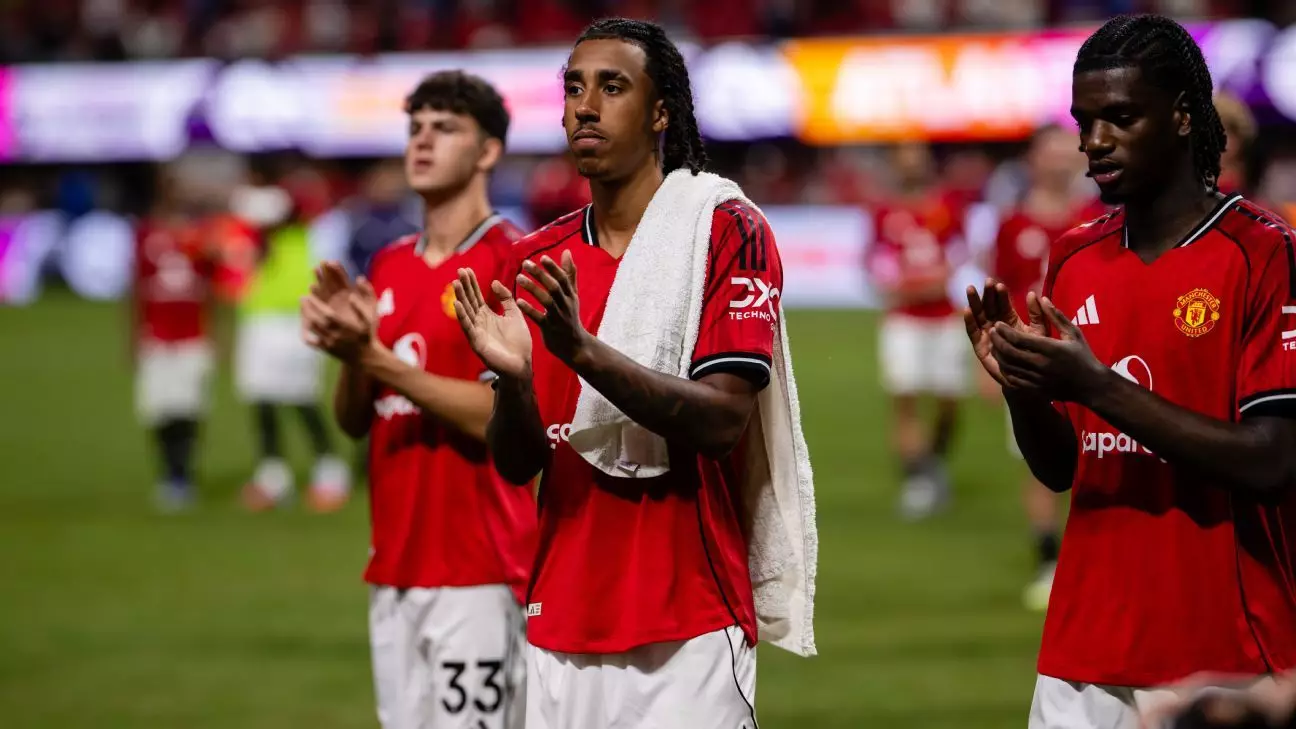Manchester United finds itself at a critical crossroads after experiencing its poorest league performance in over five decades. The team’s recent struggles have not only dampened spirits but also cast a shadow over the club’s long-standing reputation for excellence. However, in the face of adversity, there is a palpable sense of determination among players and staff to turn the tide. Leny Yoro’s candid assertion that this season will be “like a revenge” reveals a mindset rooted in humility and unwavering ambition. It signifies a collective acknowledgment that recent failures are unacceptable and must serve as catalysts for growth. United’s culture, traditionally built on resilience and a desire to reclaim superiority, appears to be reigniting, with a fresh vigor fueled by recent disappointments. The team’s preseason performances—marked by wins and resilience—mirror this renewed focus on improvement.
Strategic Reinforcements and the Pressure of Expectations
The summer transfer window saw Manchester United invest heavily—over £130 million—in promising talents like Matheus Cunha and Bryan Mbeumo. This infusion of resources underscores the club’s urgent desire to bolster their squad and address glaring weaknesses exposed last season. Such magnitude of expenditure adds immense pressure; fans and critics alike anticipate instant results. It’s a gamble rooted in hope that new signings will catalyze the change needed to elevate the team’s competitiveness. Yet, money alone cannot resolve ingrained issues of strategy, mentality, or cohesion. The club’s management faces the challenge of integrating these new players seamlessly while managing sky-high expectations. The upcoming season isn’t just about accumulating points; it is a test of club resilience, strategic planning, and the ability to harness new talent under intense scrutiny.
Facing External Criticism with Inner Confidence
The narrative surrounding Manchester United has often been dominated by outside noise—criticisms, media speculation, and fan frustrations. Yoro’s comments highlight a crucial shift: the players are aware of the doubts cast upon them but remain undeterred. His confidence that the squad can “cut out the outside noise” signals a mature understanding of the mental battles in professional sport. The team’s focus on internal growth, maintaining unity, and ignoring detractors is essential if they are to escape the cycle of underperformance. This mental resilience is arguably more important than tactical adjustments because it fuels the belief that with hard work and determination, United can defy the pessimism. Such conviction sends a strong message: despite setbacks, the club retains an unyielding core that refuses to accept mediocrity.
Rebuilding a Legacy of Excellence
For Manchester United, the coming months will serve as a litmus test for their ambitions and willingness to rebuild. The presence of seasoned players, combined with emerging talents, offers hope for a renaissance. Yoro emphasizes that the club’s identity as a giant in the sport should never be compromised, much less abandoned due to a single bad season. The collective mindset is clear: this year, the focus is on redemption, on correcting course, and on proving that United still belong among football’s elite. The road ahead demands not just tactical brilliance but also mental toughness, unity, and a relentless pursuit of excellence. It’s time for the Red Devils to rewrite their narrative and demonstrate that the club’s legacy is resilient enough to withstand adversity and emerge stronger than ever before.


Leave a Reply